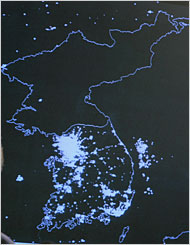Finferle

One August day in 2001, I stood in a sun-drenched valley of the Alpe di Siusi, gaping at the snow-capped Dolomite rock mountain formations all around me. In the distance rose the imposing Sciliar, which my husband would climb to the top in a couple of days. My legs were pleasantly sore from a 25-kilometer hike the day before. Tomorrow, we'd hike to the castle, on a path winding through farms where locals gathered the fragrant hay used for restorative "bagni di fieno" and large, happy cows dangled their clanging bells as they chewed.
The world was at peace. The Clinton years had made the U.S. admired and loved again in Europe. It felt good to be an American. The dollar had not been so valuable in decades, and all this abundance came at a low cost. I was on sabbatical and had taken eight weeks to travel and unwind from years of pounding during the tech heyday. Life was good.
And so of course, my thoughts to turned to dinner. I had noticed crates of just-picked finferle on our morning hike when we stopped for some fresh raspberry juice at the malga (mountain farmhouse where local, artisanal food and drink are offered). Might we be able to pick up a few pounds for dinner? That idea resonated with our friends, who suggested picking finferle ourselves. We found a wooded area where they were sure to be found. It was like a frenetic Easter egg hunt, with the seven of us amazed to find fat specimens everywhere we looked. But then we were told it was actually illegal to pick these, which is why the women were stuffing them in their shirts. No ranger would dare ask them to unbutton their blouses to check for contraband! Furbi!
That night the chef at our small hotel cooked us up a creamy ragu with our ill--gotten finferle and served it with hot slabs of polenta. He turned up the music and, in a state of wild mushroom inebriation, we danced: chef, chef's wife, kids and all. Life was damn good.
Now for a confession: that very day in the sun, as I took in that incomparable scene and considered my fine fortune, I could not dispel a nagging thought. Life was just too good. Something was going to give. I could feel it in my bones. And of course, everything started to change one month later.
But the finferle don't change. This weekend, we visited the Portland Farmer's Market and with a pound of funghi with the happy-sounding name, we had our scratch version of a ragu over polenta.





